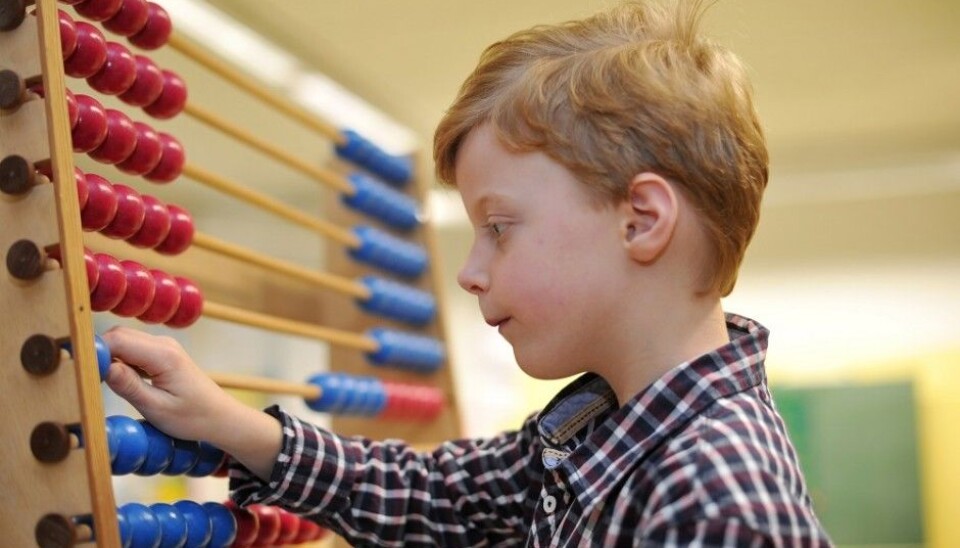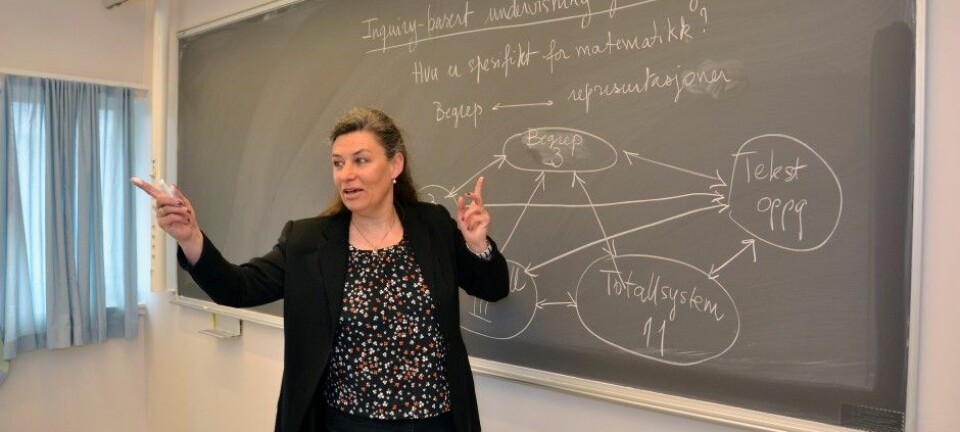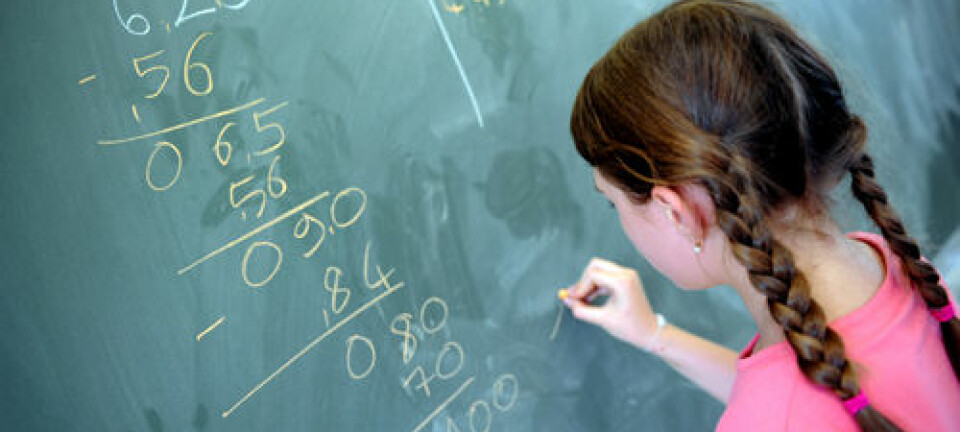
Finnish method helps Norwegian first-graders who struggle with maths
Problems with maths plague nearly 20 per cent of all school children. Offering children extra help right from the start can make a huge difference, according to Norwegian and Finnish research.
Mathematics is a subject that is additive: each new learned skill prepares students for the next.
But if you are stuck at the first step in the process, you can’t go any further. Somewhere between 15 and 20 per cent of all children and young adults have some kind of difficulty with mathematics. At its extreme, this problem is called dyscalculia.
“The sooner we can help students who get lost in the learning process, the sooner we can get them on track again. It’s always our goal to identify students who are struggling as early as possible,” says Anita Lopez-Pedersen, a PhD candidate at the University of Oslo’s Department of Special Education.
As part of her doctorate, Lopez-Pedersen is working on a research project where she and colleagues have created and coordinated supplementary measures for first-graders who have problems with mathematics. Lopez-Pedersen says it’s critical to start as early as possible with children who need help with maths skills.
“A number of studies show that children with low maths skills continue to struggle and never catch up. We also know when it's most effective to help these kids: Students develop their math skills a lot during the early school years, which is something we also see in reading research," she says.
Although her results are not yet complete and have not yet been published in a peer-reviewed journal, her preliminary findings suggest the approach has positive effect for the students who have participated, Lopez-Pedersen said.
Close work in small groups
One hundred and twenty children from nine schools participated in the study, which was completed in the autumn of 2017. The researchers chose participants from a group of 400 students. Sixty of the students were given extra teaching in maths, while the other 60 continued with the routine teaching programme and thus served as a control group for the study.
The teaching plan was divided into two periods: the first lasted eight weeks, where the first graders in the programme were given three extra hours a week of teaching while in a group of four to five students. Two of the hours were spent in the group, and then the students were given 15-20 minutes alone with a teacher where they worked with the teacher on the topics they had learned about during the week.
“This gives the teacher an chance to observe students up close, and monitor the students' progression. This is a common approach in reading, but not in mathematics. The ten teachers who are working with these children have been extremely pleased with the measures,” she said.
A good window on learning
"The individual sessions have provided a good window on how the students learn and have helped teachers see where the students’ misunderstandings are and what they can do to help students progress,” she said. “A student might struggled with a topic but it would have been hard for the teacher to detect this in a small group, with four or five other children."
Two weeks after the first round was over, part two started. This phase lasted six weeks.
"We know that the effects of these measures often disappear, so we wanted to give the students a boost,” she said. During this phase, the teachers reviewed what they had done in the first round of teaching.
“Our preliminary analyses show that the children who were given extra follow-up do better than the group who weren’t offered the extra teaching. The trend seems to be that the effort has an effect, but that the effect disappears if the measure is not reinforced,” she said.
The Norwegian research project is based in part on the Finnish project ThinkMath, which uses information from international research to craft programmes to strengthen the math skills of children who struggle with the subject.
Similar results in Finland
Since the ThinkMath project was launched in Finland in 2011, it has had positive results, according to Pirjo Aunio, project manager for ThinkMath and Professor of Special Education at the University of Helsinki. She is also involved in the Norwegian study and is a professor at the University of Oslo.
The ThinkMath project has increased the early readiness of Finnish students in kindergarten, first and second grade who initially scored low in readiness, she said.
"We have also seen in Finland that when the programme concludes, the children's skills stop growing in the same way as before,” Aunio said. “This tells us that children who are underperforming probably need constant support in the learning process. To put it another way: The normal classroom teaching does not help them reach their potential.”
-------------------------------------
Read the Norwegian version of this article at forskning.no.
































